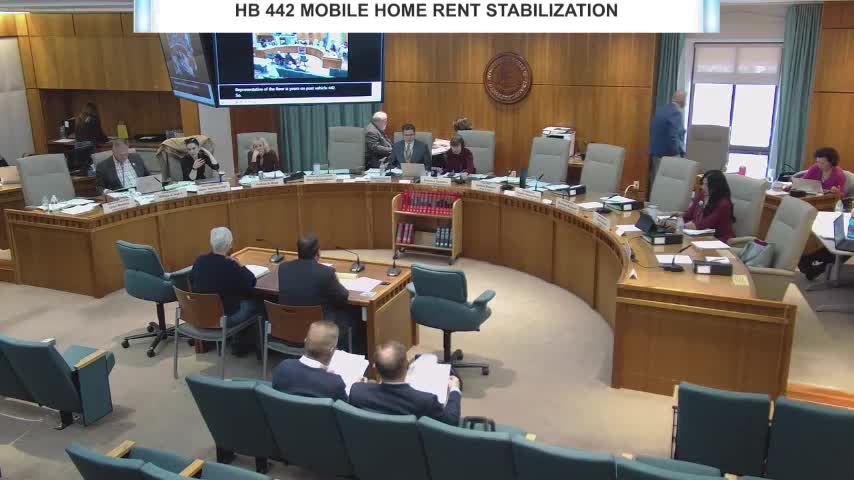House committee advances substitute to address mobile-home park rent spikes, creates working group
Get AI-powered insights, summaries, and transcripts
Subscribe
Summary
Representative Cynthia Matthews told the House Judiciary Committee that frequent rent increases and failing park infrastructure were creating a housing crisis for many New Mexico residents who own manufactured homes but lease the land beneath them.
Representative Cynthia Matthews told the House Judiciary Committee that frequent rent increases and failing park infrastructure were creating a housing crisis for many New Mexico residents who own manufactured homes but lease the land beneath them.
The substitute for House Bill 442 creates a working group to study mobile-home park operations, requires an initial report by Dec. 1, 2025, and a second report by Sept. 1, 2026, and includes a temporary constraint on the frequency of rent increases while the working group studies long-term solutions.
Why it matters: Approximately 32,000 New Mexicans live in mobile-home parks, many on fixed incomes. Witnesses described long utility outages and expensive repairs, and residents said sudden rent hikes have forced families to borrow money or move.
The bill calls for a stakeholder working group to develop recommendations for balancing tenant protections and park-owner responsibilities. The sponsor said the measure is intended to buy time while the panel designs permanent solutions.
During public comment, tenants and community organizers described repeated rent increases, outages of water and gas for weeks or months, and health and financial harms. Rochelle Smith, chair of the Meadows Action Team at Albuquerque Meadows, described residents who face rent increases that leave long-time seniors paying a disproportionate share of their income for lot rent and sometimes cutting essential spending to keep housing.
Park owners and industry groups said that the substitute’s private-remedy provisions and some rent limits could harm owners’ ability to finance urgent infrastructure work. Doug Ottersberg, who operates communities in Santa Fe and Albuquerque, said major gas- or water-system repairs can take months to finance and complete and that penalties tied to missed deadlines could reduce owners’ ability to respond.
The committee adopted a hybrid outcome: a do-not-pass on the original House Bill 442 and a pass on the House Judiciary Committee substitute (0.4). Lawmakers said they want the working group to finish its study before deciding permanent rules.
Ending note: The substitute establishes timelines and a two-year interim period for rent constraints while the working group meets. Committee members said they expect further negotiations with tenants, park owners, and state regulators before the Legislature considers a final bill.
